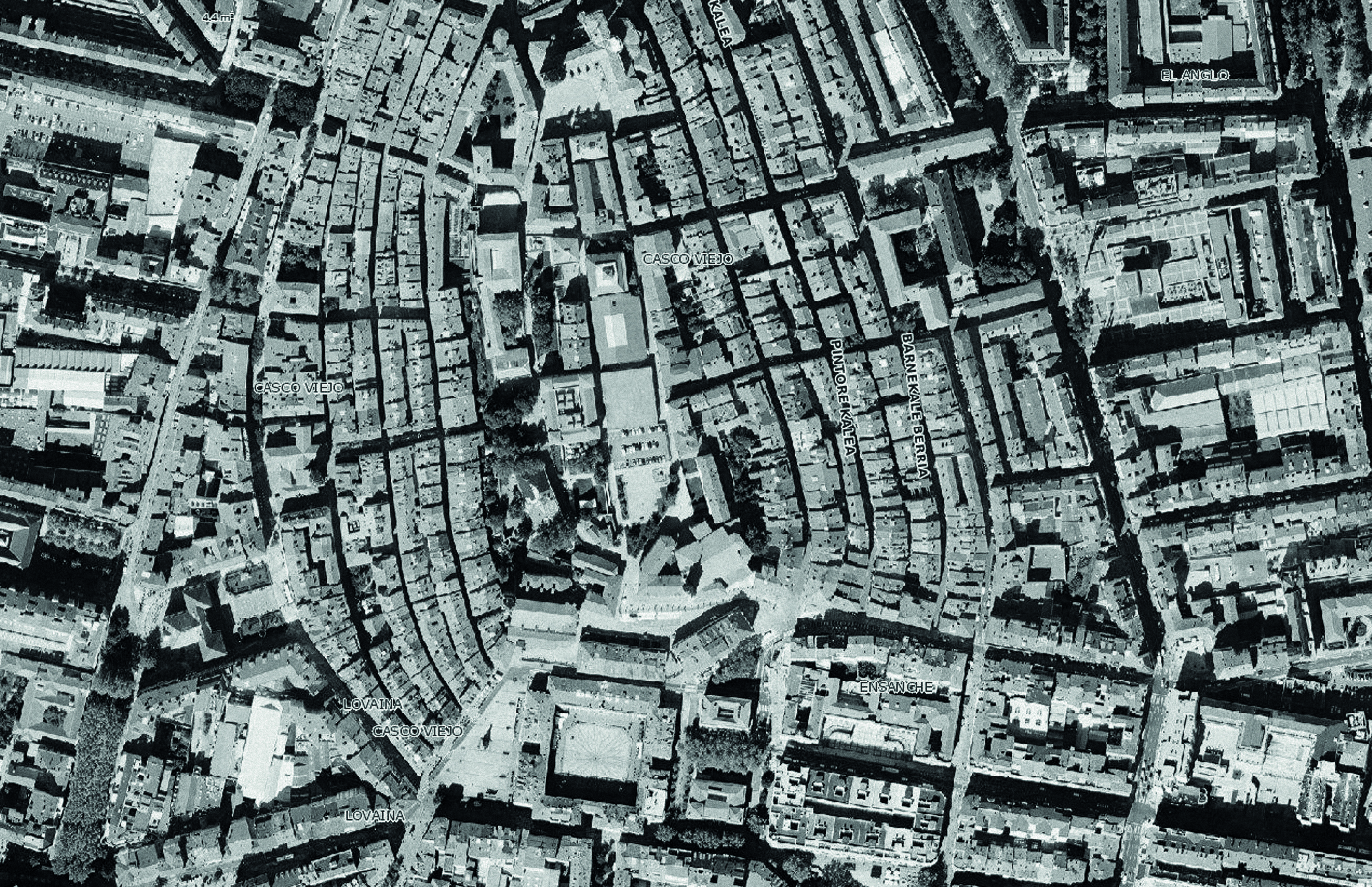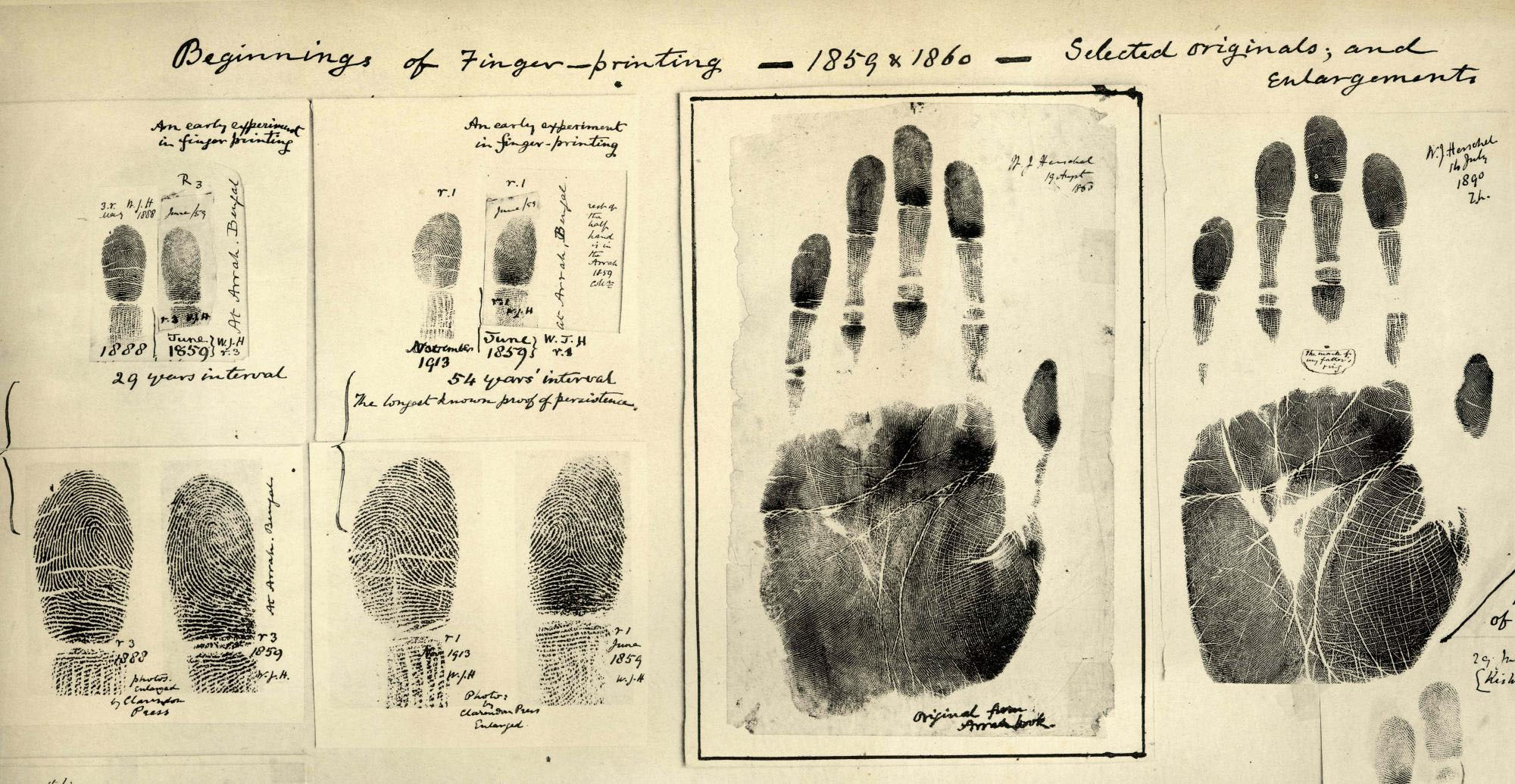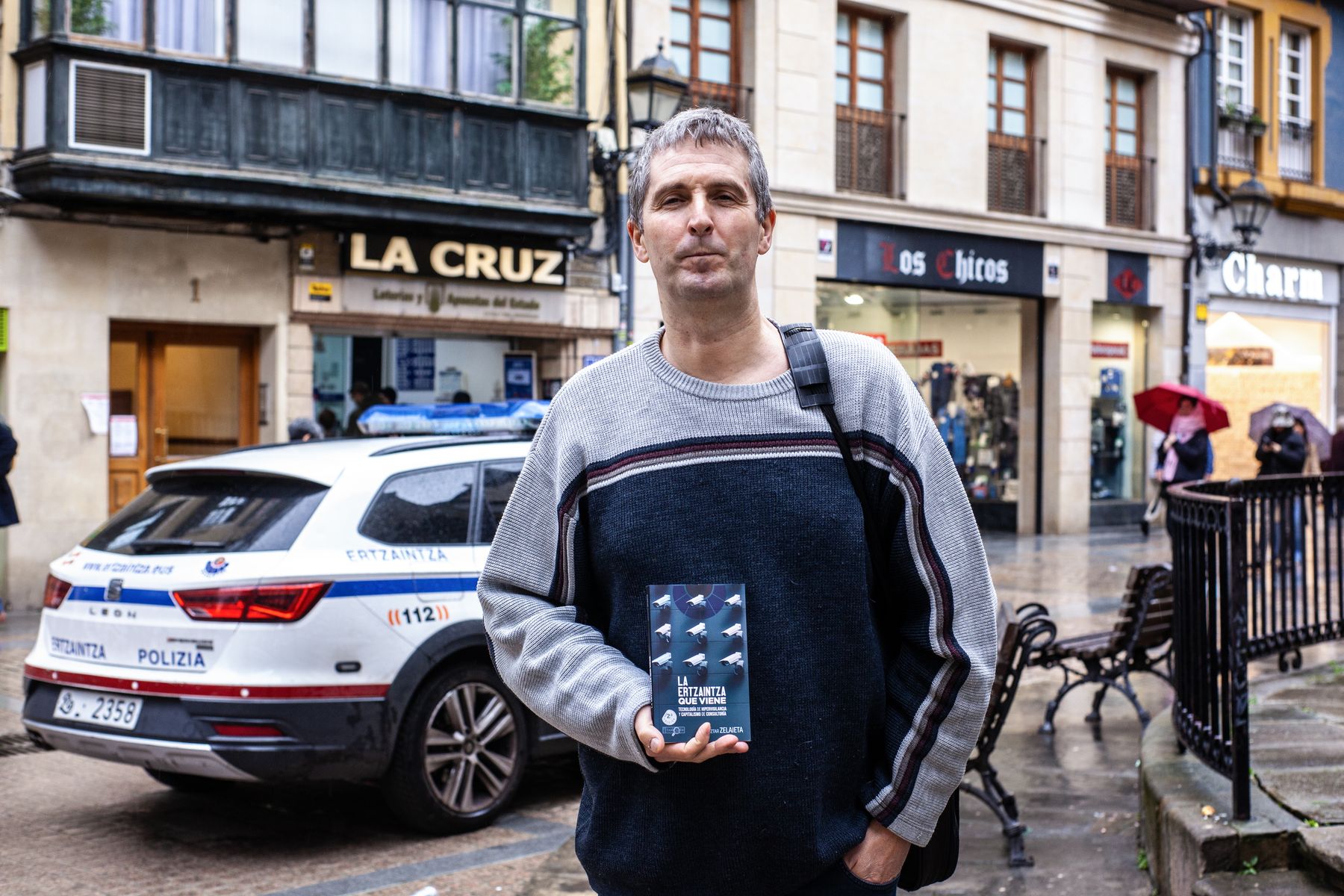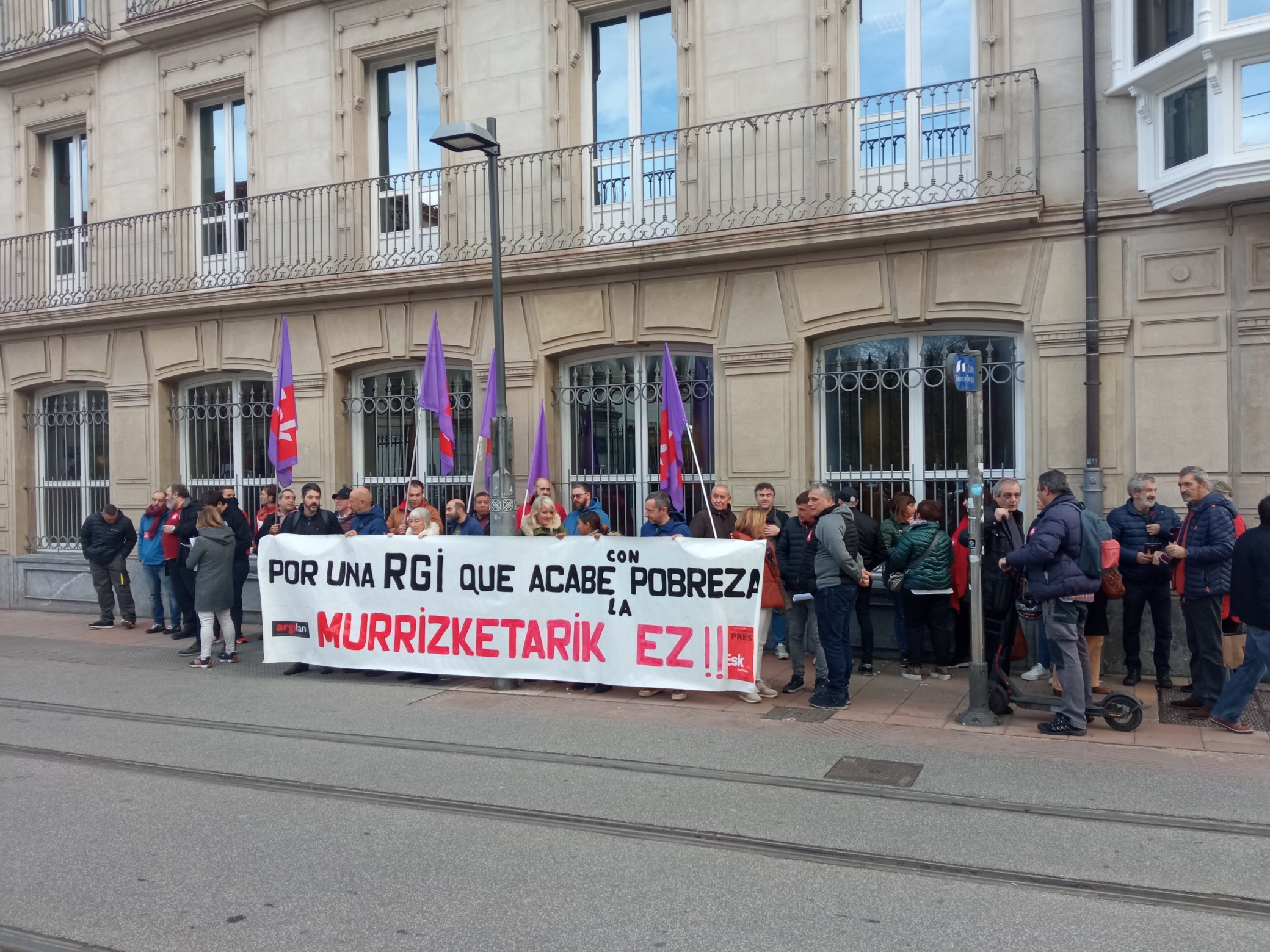What surveillance cameras hide
- In Vitoria, as in other cities, they want to install new surveillance cameras, but they do not tell us their true characteristics. It is more serious that they do not explain to us what the real causes are, nor who the cameras benefit from. We will analyze the issue in general, starting from the specific case of Vitoria. We want to encourage reflection, without the police or the House, to deal with conflicts.

In September, Vitoria Security Councilor Iñaki Gurtubai (PNV) announced the installation of seventeen new video surveillance cameras in the Casco Viejo and the Ensanche. “They are advanced technological devices, with better performance than the cameras used today, for their greater resolution or for a better intelligent analysis of the image. It is the first step to use video surveillance for the prevention and investigation of crimes as a fundamental tool”, according to the website of the City Council of Vitoria-Gasteiz. Gurtubai wants to incorporate 100 new cameras in the coming years, following the “model” of 300 cameras that have already implanted in Pamplona.
The measure is not an idea of the new security officer. In March 2018, PP councilor Gustavo Antéa presented the proposal to install fourteen surveillance cameras in the "strategic points" of the Casco Viejo. But who started the public competition for the installation of new cameras was Marian Gutiérrez, a Security Councillor of the last legislature, of the PSE. Gutiérrez provided the following information at the Security Commission in January 2023: "The Municipal Guard has cameras in the Casco Viejo and in the Ensanche, specifically 29. We want to replace these 29 with 17 new higher performance and redefine their location."
False insecurity and unavailable cameras
The commitment of these three municipal groups to the surveillance cameras is evident. Insecurity does not seem to be the cause, as Gutiérrez pointed out in the same committee that Vitoria is a “safe city”. One month later, the then Councillor and current PSE Mayor, Maider Etxebarria, made the following statements to the Gasteizhoy media: "We have the lowest crime rate of the three Basque capitals and one of the three lowest Spanish capitals. There's a lot of security on the street."
The question is clear: If Vitoria is safe, what is the reason why you want to install 100 cameras? Taking into account the provisions of the Spanish Data Protection Agency (AEPD) on the installation of fixed cameras in public spaces: "Its use requires the existence of a reasonable risk to citizen security". These mechanisms affect people’s rights: In 2004 the Union of Vitoria-Gasteiz, Ombudsman, stood against the installation of cameras on Barrenkale Street in the Casco Viejo, “because there is no proportionality between the objectives that could be achieved with these mechanisms and others that would be sacrificed. There are no cost-effectiveness adjustments either.”
The question is clear: If Vitoria is safe, what is the reason why you want to install 100 cameras?
The Ombudsman may have known the results of video surveillance cameras elsewhere in the world. For example, the Toronto Police Service conducted a study in 2006 on the use of cameras for the development of community security: "The results were not satisfactory. Closed-circuit television (CCTV) systems do not repel offenders, but promote a false sense of security. Many criticisms were made when arguing that video surveillance is a ‘patch solution’ that does not address the origin or causes of the problem. Conversely, resources should be allocated to community strengthening programmes".
This research is not an isolated case. In 2008, the International Center for the Prevention of Crime published the Evaluation of Video Surveillance as an effective management and security tool for the resolution, prevention and reduction of crimes: "According to several investigators, the COI does not reduce the sense of insecurity, demonstrating that it is not effective as a means of crime prevention, reduction and resolution. According to Jason Ditton (2000), TVZI cameras do not make people feel safer, creating a false fear that is accentuated by intense media activity. In addition, the chamber signals the citizen (innocent), not the criminal, and imposes constant fear in public spaces". That is, they question what the first deputy mayor and current mayor, Maider Etxeberria, said in January 2023 around the chamber: "We are making a great effort to update our means, implement new systems that facilitate work and make police work more effective." If it is not that the work of the police is not the prevention of crimes, but the control of citizenship. In this task the chambers make it easier for them to work, but the price for citizens is high.
Is it ethically valid? Are rights respected? What are the consequences of choosing these forms of control?" (Gema Varona Martínez)
Serious loss of duties
The dubious ethics of camera installation and its influence on rights is the first issue hijacked by its advocates. But this is precisely what, because of its importance, any political professional should study in advance, and it seems that the municipal groups supporting the installation of cameras in Vitoria have not done so.
"It is not a question of denying the problems of citizen security, but of calmly reflecting on the cost of measures buruz.Eraginkorrak that have not been clearly demonstrated and, in any case, affect fundamental rights. "Regarding effectiveness, among the undesirable measures are the serious impact on fundamental rights, the increased perception of insecurity, especially in the medium or long term, social indifference and the risk of stigmatizing certain places and collectives," says Gema Varona Martínez, PhD in Criminal Law, and a study by the criminologist in 2012.
"The Closed-Circuit Television does not reduce the sense of insecurity, which proves that it is not effective in preventing
crime" (International Crime Prevention Centre)
Varona adds some pedagogical questions and questions that political groups should raise from the outset: “To educate our young people in a critical attitude that allows them to face the naturalization of all kinds of surveillance measures. First of all, in a quiet, reasonable and scientific way, so that you value it ethically valid? Are rights respected? What are the consequences of choosing these forms of control? What is the economic and human cost? Is video surveillance sustainable as a local security policy? Are citizens’ expectations unrealistic? What is the training of people who control cameras?”
The parties may also consult what the EPD says in this regard: "If a treatment, especially if it uses new technologies, may pose a high risk to rights and freedoms, the controller shall carry out an impact assessment prior to treatment." According to the AEPD, "it is necessary to evaluate if there is any alternative, to control the number of cameras, as well as the type of camera, since it is not the same to take images with a fixed camera as with the so-called "domes", which allow 360 degree recordings". The latter will be installed in Vitoria-Gasteiz.
.jpg)
What they hide around the cameras
In the case of the chambers in Vitoria we have some specific questions. Or, if not, lie directly to us. At the meeting of the Security Committee in January 2023, the then PSE Security Councillor, Gutiérrez, stated: "I believe that the study of the face is not allowed in Europe, so there will be no recognition or likeness here." A few months later, the new Security Councilor, Gurtubai (PNV), said the cameras “do not allow a face test and something like that.”
Firstly, it is noteworthy that a person responsible for the subject says that facial analysis is not permitted in Europe, since the information has been published in 32 European states, including Spain and France, which are accepting and using. But the second issue is more serious: Confirm that the cameras to be installed in Vitoria do not allow you to know the face. It's fake, and they both know it. Among other things, because the City Council's own technical specifications contain the following: "Among the available search facilities are: (...) 9. Search for face analysis." In addition to cheating, they want to avoid basic public debate, because, as journalist Monica Mena said, "the widespread expansion of this technology raises important questions about its consequences on privacy, and there are many national governments and their citizens at the heart of the global debate on the ethics and legality of mass care."
It is also serious not to notice that the cameras you are installing have the ability to receive sound. This municipal document also includes: "Cameras must be of the following type: with audio input and output". Therefore, the position of operator of cameras should include the following capability: "It will allow you to drag and drop a video source from a map to a window to monitor audios and videos, recorded or in real time." It is particularly serious because the Guide report on the use of video cameras for security and other EPD information (Guide on the use of video cameras for security and other purposes) specifies: "They cannot be used when it directly and seriously affects people's privacy, or to record private conversations."
Confirm that the cameras to be installed in Vitoria do not allow you to know the face. It's fake.
And if there are still doubts about the serious attack of these cameras on privacy, we add the comment of an agent of the Pamplona Municipal Police to Eitb about this type of cameras (remember that they are already installed in Pamplona): "It's terrible, you also see hairs from the nose of the person you're looking for."
Some of the real reasons for installation
If the cameras are not useful to ensure security and also infringe on the important rights of citizens, we must reflect on the real reasons for them. We will certainly not all know, but we can mention some, both general and particular, of Vitoria.
Among the generals, Gemma Galdón Clavell has given us a few. Galdón is an expert in spying, on the social, legal and ethical impact of technology, on security policies and policing, among others, and so says: "It seems that the reason for video surveillance is not so much in the needs of a terrified society, but in the windows of opportunity that opens the urgency of a delegitimized institutional framework and a society that seeks to blame. The apparent deafness of policy makers and operators to the ineffectiveness of video surveillance seems to hide the constellation of the transformations that have taken place in urban governance, the conceptualization of risk and the public perception of insecurity. Whether it reduces crime or improves the sense of security, video surveillance seems to prevail because it is an immediate solution, because it is easy to implement, can generate little opposition and therefore ‘works’, even as an unnecessary tool to manage insecurity.” You only have to add: and you have many votes.
Another unrecognised reason is that it is commonly used in gentrification processes. This is what Metropolice says. Security and police in the neoliberal city: “In the political processes related to the ‘revitalization and dynamization of neighborhoods’, with the creation of new models of public space (also socially hygienized), the ‘decision of municipal authorities to establish videosurveillance’ should be considered a functional option.” In particular, interest in tourism and trade has been added to Vitoria-Gasteiz. "Vitoria-Gasteiz will use artificial intelligence to attract and retain tourists. The capital of Alavesa will put passing sensors and state-of-the-art cameras for visitors’ tastes,” El Correo published on September 29. "The aim is to gather information for better strategic decision making," said the Head of the Municipal Tourism Projects Service.

Among the particular reasons affecting Vitoria-Gasteiz are two, probably not very different from what happens in other cities. Both have to do with those who benefit from installing the cameras. Firstly, the successful undertaking. It will be influenced by the excellent research journalism works published by Ahoztar Zelaieta, but when the vitorians had the opportunity to see the list of the seven companies that presented to the competition in the antimilitarist group, to guess who would be awarded if they had participated in a porra, we would bet on the company Systems Engineering and Telemando SAU (INSITEL), even if we did not present the public competition. And we would win the baton. The reason for our bet is simple: Since 2018, the director of this Vizcaine company (according to linkedin profile) is Sabin Anuzita Pompose, councilman of the PNV in two legislatures of the mayor of Bilbao, Iñaki Azkuna, and one of the 65 cases of revolving doors of the PNV, as pointed out by the Ahoztarras. Its clients include the Port Authority of Bilbao, Euskal Trenbide Sarea, Bilbao Exhibition Center, the Bizkaia Transport Consortium, the Bilbao Bizkaia Water Consortium and the Basque Government itself.
We also hope that Gustavo Antéa, former PP councillor, will be well served by the cameras (as we saw at the beginning of this text, the first public proposal of the installation was made by himself). In fact, if the cameras are placed in the agreed locations (one in the mechanical ramps of San Francisco Javier; three in the ramps of La Soledad; two on the hill of San Francisco; two in Mateo Moraza; four in Plaza Nueva; two in the access to the Casa Consistorial and three in the Virgen Blanca) they will not be able to detect if they continue to perform hidden works in the streets.
We have experiences that allow us to address conflicts without a surveillance chamber.
Without Chamber or Police in
Vitoria we sponsored the Sin Poli initiative. Also on this issue of the Vitoria chambers we have experiences that allow us to address conflicts without surveillance cameras. This was the case in the conflict on Barrenkale Street in Casco Viejo, where the trustee recommended not to place cameras. Or later on Santo Domingo Street in the same neighborhood, where it was proven that it was to be installed in 2017, but fortunately they were not installed. In both cases, the patience and good work of a part of the neighborhood community solved the problems. The same is true of the illegal works carried out by the political leader Gustavo Antéa in the Casco Viejo. Those who publicly denounced their conduct were not chambers, but organized neighbours.
We want to offer those threatened with the installation of cameras one more tool: one of the best texts on the subject we know, produced by the Sagarratz Debate Group. A few years ago they suffered from the establishment of cameras in the Moscow district of Irun, and decided to face reflection and action. Part of this reflection is the text Smile, please be filmed: "To demand the need for civility to promote the construction of speeches in favor of video surveillance and its recognition, should be the first to receive our criticisms. Guilty discourse is the main way to assimilate these measures and develop tolerance to control. We cannot fail to mention that control measures are part of the education and conditioning that future generations must receive, they are part of symbolic violence to ensure the continuity of the system, until the protests are diluted and become harmless to citizens". Keep it in mind.
*Estitxu Martínez de Guevara is a member of the Vitoria anti-militarist group.
Europar Batasunean berriki onartu den Migrazio Itunak, asko zaildu dizkie gauzak euren herrialdetik ihesi doazen eta asiloa eskatzen duten pertsonei. Eskuin muturraren tesiak ogi tartean irentsita, migratzaileentzako kontrol neurri zorrotzagoak onartu dituzte Estrasburgon,... [+]
In the Basque Parliament, the legislative amendment to the Basque System for Inclusion and Income Guarantee has advanced. We need to look at the debate on the law, the agreements on the left and the right to amend it, and at the limited impact that the reforms brought about by... [+]
Video surveillance is not something new on our streets, neither in San Sebastian, nor in Euskal Herria, but what is especially serious is that the increase in smart video surveillance, which implies increased security and social control, is taking place without any kind of... [+]
Abenduaren 18 arratsaldean Donostian jendetzak hartu ditu kaleak, Bizitza plataformak deituta egin den manifestazioan. "COVID pasearen inposaketari ez" lemak elkartu ditu.






















